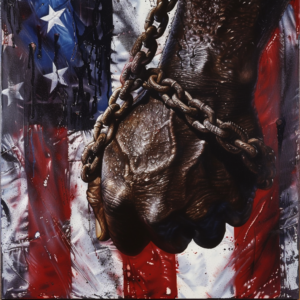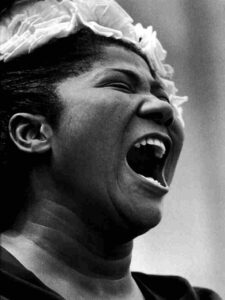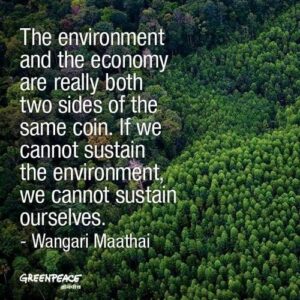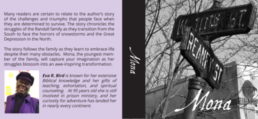WHY BUY BLACK?
This month marks the 20th Anniversary of Black Business Month, a time dedicated to acknowledging and appreciating Black-owned businesses. The goal is to highlight and empower Black business owners across the country, as well as acknowledge the unique challenges that Black business owners face.
Beyond enslavement, the origins of today’s racial wealth gap can be traced to Jim Crow-era practices like redlining, job discrimination, and exclusionary legislation, which segregated Black Americans from higher paying jobs and home ownership. Supporting Black-owned businesses can help close the racial wealth gap, which is currently about 12 times larger for white families than Black families.
Many Black American business owners self-fund their businesses because of the lack of loan opportunities and to avoid racist, predatory lending practices. This makes it difficult for Black entrepreneurs to grow and expand their companies. In Atlanta, for example, long heralded as the “Black mecca,” yet the wealth of White households is 46 times greater than Black households, according to a recent report from the Atlanta Wealth Building Initiative. In addition, 97% of Black-owned businesses have no employees and are more concentrated in lower-revenue industries.
Despite these hardships, Black-owned businesses are geographically concentrated in their communities and are more likely to provide job and self-employment opportunities in low-income neighborhoods. By supporting Black-owned businesses, we can create more opportunities for Black people to save money, buy property, build credit, and create generational wealth.
When small businesses flourish, so do their communities. The best way to celebrate Black Business Month is to seek out and support local Black-owned businesses. You can also shine a spotlight on them via social media. If you come across any content related to Black businesses, like, share, or repost so it reaches a larger audience. You can also search and follow hashtags like #blackbusiness or #blackbusinessmonth to lend your support online.
July 4th--And We Still Must Mourn

“This Fourth of July is yours, not mine. You may rejoice, I must mourn.”
– Frederick Douglass, July 5, 1852
Every year on July 4th, American flags wave proudly, parades and fireworks light up cities and towns, and barbecues sizzle in backyards and on front stoops, all in celebration of America’s independence. However, 248 years after the battle for independence, many are not likely to feel patriotic, particularly Blacks in America as they still are waging a fight for freedom every day.
In 1776, Black people were shackled in bondage, and seen as mere property, while white Americans reveled in their hard-won freedom. Some brave souls seized the moment to flee, revolt, and resist their chains. Meanwhile, Indigenous Americans faced a harrowing fate, their people decimated by war and disease, their sacred lands stolen under the ruthless banner of Manifest Destiny.
If the promise of America isn’t afforded to all Americans, then we are still at war – a war with ourselves to forge a true America. Even after the Civil War and the Civil Rights Movement, America still yearns for civility. Individuals and organizations committed to racial equity must remain rigorous and steadfast in fighting for racial justice. It’s a work in progress.
July 4th should be a time for deep reflection on our nation's current crossroads, as we watch the principles of freedom and justice slip through our fingers. Since the affirmative action rulings of June 2023, efforts to advance racial equity have faced relentless opposition. A calculated campaign seeks to dismantle diversity, equity, and inclusion programs in our public institutions—schools, libraries, and government agencies alike. In 22 states, legislatures have curtailed DEI initiatives on college campuses. The relentless push to suppress voting rights continues unabated at state and local levels. Recently, the Georgia Supreme Court struck down the Fearless Fund’s Strivers’ Grant program, which aimed to uplift Black women-owned businesses. We must remain vigilant against the conservative agenda's drive to double down on the starkly racist policies of Project 2025.
From the vehement denial of historical truths and the battle against teaching ‘critical race theory’ to the proposed laws that deepen systemic racism, BIPOC communities are still treated as second-class citizens, stripped of equal rights, opportunities, and privileges. This Fourth of July, while we are free to celebrate, we cannot turn away from the profound historical truth this day symbolizes.
A Man’s Good Health is His Greatest Wealth
June is National Men’s Health Month, a time to remind men of the health issues they face and what they can do to take better care of their health. Generally, men are notorious for not being proactive about their health. Reluctance about health and illness prevention is part of the reason behind Men’s Health Month. Men often need a series of subtle reminders to think about and prioritize their health.
According to Healthy People 2030, on average, men in the United States die nearly 6 years earlier than women and are at higher risk for many serious diseases, including heart disease, lung cancer, and HIV. Only 60 percent of men go to the doctor for an annual checkup, and 40 percent won’t go until something is seriously wrong. Mental health is also a concern in men. Interventions to reduce smoking and drinking and promote healthy behaviors also can help prevent diseases and improve men’s health.
Here are some other important considerations about men’s health:
- Blood Pressure: If you have a blood pressure of <120/80 mm Hg, it is within a normal range and it increases slightly with age. It’s important to track blood pressure because high blood pressure or hypertension (130/80 mm or higher) means the heart is working harder to pump blood and increases the risk of heart attack, stroke, and other diseases.
- Weight: A normal body mass index (BMI) for men is 18.5 to 24.9. For example, someone who is 6 feet tall can weigh up to 183 pounds and be considered at a healthy weight. Follow up with your doctor to understand what your appropriate weight and BMI should be. Also, a preferred cholesterol range should be less than 200 mg/dL.
- Sugar: Keeping check for high blood sugar levels with an A1C test can help screen for diabetes. An A1C result below 5.7% is considered normal, 5.7% to 6.4% may be a sign of prediabetes, and 6.5% or higher may be a sign of diabetes.
- Sleep: You should strive to get 7 to 9 hours of sleep as an adult. Poor sleep habits may bring a higher risk for chronic disease. Consult with your doctor if you are having issues getting restful sleep.
- Sex: About 30 million men have erectile dysfunction (ED) in the United States. ED may be influenced by smoking, obesity, diabetes, and sedentary lifestyle. Every man is unique, so talk with your doctor about the numbers and screenings right for you.
Resources:
Men’s Health Month 2024 Toolkit provided by the U.S. Department of Health & Human Services Office of Minority Health: https://minorityhealth.hhs.gov/mens-health-month-2024-toolkit
Men’s mental health facts: https://mhanational.org/infographic-mental-health-men
Music --the Soul of the Movement Past, Present and Future

"Jazz speaks for life. The blues tell the story of life's difficulties — and, if you think for a moment, you realize that they take the hardest realities of life and put them into music, only to come out with some new hope or sense of triumph. This is triumphant music." – Martin Luther King, Jr
June is Black Music Month. Black music has had an indelible impact on the Civil Rights Movement and the ongoing struggle for Black liberation. Deeply rooted in African tradition, music, and Black American resistance have gone hand in hand since before our country’s founding. Black Americans have used the power of music in countless ways; inspiring and guiding enslaved people toward freedom, forging alliances among protestors, and, most recently mobilizing millions to combat police brutality.
Music is a form of storytelling. The use of music in the Civil Rights Movement served as an essential form of communication and community building. Singers and musicians collaborated with Civil Rights leaders to share songs with activists and the community. These songs motivated them through long marches, to push through harassment and brutality, and to cope with the stress and loss of loved ones.
In the rich tapestry of historical melodies, one anthem stands resolute: "We Shall Overcome." Born from the depths of the 19th-century African American Gospel, it found its voice amidst the early throes of the Civil Rights movement. Joan Baez's rendition at the 1963 March on Washington, alongside President Lyndon Johnson's invocation of its lyrics in advocating for the Voting Rights Act of 1965, cemented its status as an emblem of the struggle.
Yet, it was not alone in its resonance. Nina Simone's "Mississippi Goddam" encapsulated the anguish of Medgar Evers' murder and the 16th Street Baptist Church bombing in Birmingham, Alabama. Her repertoire, including "Four Women" and "To Be Young, Gifted and Black," underscored the movement's tumultuous narrative.
Preceding this era, Billie Holiday's "Strange Fruit" painted a chilling tableau of racial terror, evoking the haunting specter of lynching. For Holiday, it was a deeply personal lament, tethered to the memory of her father's tragic death due to racial prejudice.
The Civil Rights Movement, marked by both elation and trepidation, found solace in music's embrace. As they confronted violence and oppression, protesters found strength in song. From the fields of southern plantations to the pulsating rhythms of rock & roll, these melodies served as a beacon of unity and resilience.
Dr. King's assertion that "songs were the soul" of the movement rings true. Whether sung amidst marches or within the confines of jail cells, these anthems provided solace, courage, and a sense of collective purpose.
Across generations, the legacy of these songs endures. They serve as a testament to the enduring power of music in the pursuit of justice and equality, reminding us that the struggle for freedom knows no bounds. The power of these timeless songs will undoubtedly continue to live on to inspire future generations.
“They thought we wouldn’t fight back”: When Nature is Turned Against Us
Environmental justice, defined as having equal and open access to shape environmental protections, policies, and benefits that impact our communities, has never been a reality for people of color. In fact, it has been quite the opposite: virtually all environmental injustice in this country has been fueled by the patterns of racism and class that have existed in the United States since its founding.
It is well documented that the most marginalized communities are also the areas where waste has been stored, industrial warehouses and facilities are concentrated, and where natural resources have been exploited - by both official legislation and unofficial custom. Corporations, regulatory agencies, and local planning and zoning boards consistently target low-income communities of color when determining where to locate landfills, waste transfer stations, incinerators, garbage dumps, diesel bus and truck garages, auto body shops, smokestack industries, industrial hog and chicken processors, oil refineries, chemical manufacturers, and radioactive waste storage areas.
The environmental justice movement began in 1978 in North Carolina when that state decided to store 6,000 truckloads of soil laced with toxic PCBs in rural, poor, and overwhelmingly Black Warren County. There are countless additional examples of environmental injustices: the fifth district of Saint James Parish in Louisiana is infamously known as “Cancer Alley”; since 2014 thousands of Black children in Flint, Michigan, have been exposed to drinking water with elevated levels of lead; and in Lowndes County, Alabama, residents live with raw sewage because basic sanitation is not affordable. Studies reveal that Black people are 75% more likely to live near oil and gas refineries, leading to higher risks of premature death from power plant pollution.
While the adage “disasters don’t discriminate” may be true, we know that bad policy does. If companies are not held responsible for the pollution they cause and the government does not act to protect all citizens, we will likely have a multitude of irreversible environmental crises throughout the nation that threaten the lives of future generations.
The environmental justice movement seeks to empower disenfranchised communities to organize and get involved in decision-making processes. The physical and natural environments cannot be separated from the cultural environments which we traverse, to work, play, and and steward our most precious resources - our families.
All forms of justice must be integrated throughout all that we do. We must support organizations fighting for environmental, racial, and political justice to create a sustainable planet for us all.
"No community should be saddled with more environmental burdens and less environmental benefits than any other".
-Majora Carter

America’s Untouchables
In honor of Black History Month, Chrysalis Lab will highlight African American individuals and organizations who have made tremendous contributions to society. We continue our tribute with esteemed author Isabel Wilkerson.
Isabel Wilkerson is an impassioned voice who helps us understand how history can be used to uplift ourselves and improve our country. She won the Pulitzer Prize for Feature Writing in 1994, making her the first African American female journalist to win. She then devoted fifteen years and interviewed more than 1,200 people to document the story of the Black people who defected from the Jim Crow South. This resulted in her debut work, The Warmth of Other Suns, which won a litany of literary awards. The book examined the Great Migration -- the movement north and westward by six million Black Southerners between 1910 and 1970.
Wilkerson noted that the Great Migration marks “the only time in our country’s history that American citizens had to flee the place of their birth just to be recognized as the citizens they had always been. It was the seeking of political asylum from within the borders of one’s own country.”
Her latest book, Caste: The Origins of Our Discontents is an expansive account of the system of divisions that govern our world. Wilkerson says racism is an insufficient term for the systemic oppression of Black people in America. Instead, she invokes the tenets of the centuries old systems of caste to explain the racial tensions and structures that undergird all aspects of American society and culture Wilkerson describes caste as an artificial hierarchy that helps determine social standing, respect, competence, and access to resources. In 2023, filmmaker Ava DuVernay wrote and directed, Origin, a biographical drama based on Wilkerson’s book.
Through her writing, Wilkerson explores the need to reconcile America’s karmic inheritance and our shared commonality. “If we truly want to end caste, each of us, every single one of us, needs to search our souls for the ways in which we may be complicit in upholding caste and stereotype and hierarchy, as our society has so cleverly trained us to do, and to consciously work against this programming in our everyday lives if we are ever to overcome it.”
Recently, there has been a staunch resistance to teaching the history of racism, caste, and slavery in our public-school systems. Many Americans find it uncomfortable to talk about the sordid parts of our past. However, all of us need to know our history in its totality. We cannot avoid our history because we are living it and we must learn from it.
A vital component of the work of Chrysalis Lab is to aid in dismantling America’s caste system by shining a floodlight on it and helping individuals and organizations confront it. We are inspired by Wilkerson’s works as it provides creative and compelling context for resolving the underlying issues that plague American society. As noted by Ava DuVernay, “this is a time when we need to be alert. We need to be aware of the stripping of freedoms and rights. The intention of certain people to distort history, to say it doesn't matter, to say it never happened. …This is the time when we have to push through our fatigue and open our eyes and engage. “
Black History Month
In honor of Black History Month, Chrysalis Lab will highlight African American individuals and organizations who have made tremendous contributions to society. We begin with Carter G. Woodson, the “father of Black history” and founder of Black History Month.
Dr. Carter G. Woodson was a distinguished Black author, editor, publisher, and historian. Woodson was born on Dec. 19, 1875, in New Canton, Virginia to parents who had been enslaved. He worked as a sharecropper and in a coal mine during his childhood. He did not begin high school until he was 20. He attended Berea College in Kentucky, obtained a master’s degree from the University of Chicago and in 1912 became the second African American to earn a Ph.D. from Harvard University.
After earning his doctoral degree, no predominately White university was willing to hire him, so he taught in public schools. He later joined the faculty at Howard University as a professor and eventually as Dean of the College of Arts and Sciences.
Woodson recognized the role of Blacks in American history was being ignored or misrepresented by the academic community. Instead of becoming disillusioned, he dedicated his life to creating an institution that would make it possible for Black scholars to study history. Woodson believed that education and increasing social and professional contacts among Black and white people could reduce racism, and he promoted the organized study of African American history partly for that purpose.
Woodson established “Negro History Week” in 1926. He explained the idea behind the celebration -- “It is not so much a Negro History Week as it is a History Week,” he wrote. “We should emphasize not Negro History, but the Negro in History. What we need is not a history of selected races or nations, but the history of the world void of national bias, race hatred and religious prejudice.” In 1976, Negro History Week was lengthened to include the entire month of February.
In 1933, Woodson published “The Mis-Education of the Negro,” a classic work on advocating for excellence in the education of Black students. The book argued that school systems across America should correct curriculums designed to deliberately “mis-educate” Black children and promote the fallacy of white supremacy.
“If a race has no history,” Woodson wrote, “it has no worthwhile tradition, it becomes a negligible factor in the thought of the world, and it stands in danger of being exterminated.”
Dr. Woodson’s tireless work is just as relevant today as it was a century ago. In the past three years, more than half of U.S. states, including Georgia, have passed measures against the teaching of critical race theory in schools. Critical Race Theory is a framework that sees race not mainly as a biological factor, but as a social construct deeply embedded in society.
The First Amendment includes the freedom to read and learn, free from censorship. In 2024, state and local lawmakers across the country will continue their crusade against a complete, accurate, and inclusive education. This isn’t new. On many occasions throughout history, African Americans have witnessed lawmakers trampling on the US Constitution to further the aims of white supremacy. If Americans don’t defend the Constitution from those sworn to uphold it, anarchy can ensue as witnessed by the January 6th Insurrection. This battle isn’t a Black thing. Defending against censorship in public in schools is a fight for maintaining a democratic nation where all voices are valued and where history is based on truth, not “a fable agreed upon.” That’s why we’re grateful to trailblazers like Dr. Carter G. Woodson who recognized the value of inclusion in education and dedicated his life to upholding it.
August Blog: Last Day of Black Philanthropy Month
As we close out Black Philanthropy Month (at least we get a full 31 days unlike the other month
designated for us to celebrate our history), but I digress. Side note - if I’m being really honest,
prior to writing this blog, I wasn’t even sure of the origins of Black Philanthropy Month and what
its purpose was/is. For those out there like me - here’s what I learned: Black Philanthropy Month
was created in 2011 by Dr. Jackie Bouvier Copeland and the Pan-African Women's
Philanthropy Network. It’s an annual, global celebration of African-descent giving. So essentially
it’s a time for us to /celebrate how we - as Black people - give, which oftentimes looks very
different from what mainstream traditional philanthropic giving looks like. I digress again - that’s
for another blog.
What I’ve been thinking a lot about lately is what it means to be a Black practitioner or
professional working within the field of philanthropy. What are the extra responsibilities we carry
as we work to move resources to Black-led organizations and communities of color? As a self-
proclaimed “recovering funder” (Thank you, Dr. Janelle Williams, Co-Founder and CEO of the
Atlanta Wealth Building Initiative for letting me borrow that term), I often think about the
challenges that come with being Black and in philanthropy. Yes - it comes with its privileges -
access to rooms, access to resources (resources we’re almost always reminded of that don’t
belong to us), access to information, and social capital. But navigating the philanthropic field also
comes with a great deal of responsibility. The responsibility of deciding who gets what and how
much of these limited resources that aren’t our own, which often translates into deciding who
doesn’t get something or anything. This process of picking and choosing which non-profit
leaders of color to elevate and build a deeper relationship with isn’t easy. In fact, it immediately
thrusts you into a position of power and hierarchical ranking - a place that we all fundamentally
know doesn’t feel right. Hell, if it were up to me (and if the resources were mine), I’d give out as
much and as often as possible - few questions asked. Simply based on the fact that I
understand our history and know that this country was built on the backs of free Black labor. So
there’s much repair and replenishing that needs to happen. No questions asked! But I digress
again, because it’s not my money, so I often find myself having to make difficult decisions - ones
that don’t always feel right when I think about how to best support and help my own Black
people and communities. Because the truth of the matter is, those often closest to the ground
doing the work within our communities are often not the ones “presentable” to our trustees.
Then it becomes an exploration of - which organizations and leaders - do I think can pass
muster? Who can I sneak by them? Which ones can I convince my board and trustees to invest
in? And then it’s up to me - as the middle woman (aka “gatekeeper”) - to deepen the relationship
with that leader of color to help them navigate what it means to be in partnership with a
traditional funder. Which then leads me to think about what it means to hold someone
accountable with love or in a way that allows for missteps but grace? How do I allow this Black
leader to show up as their authentic self and allow them to remain that way without having to
shape-shift in order to convince my trustees that they’re worthy of resources? When you pause
to think about it, and I’ve had 5 years out of the field to reflect, it’s not an easy place to be. It’s
nuanced and fraught with challenges and complexities. And I suspect that for those of us who
stay in the field long enough, we get weary and tired of “having to make the case.” I don’t have
any easy answers for my Brothers and Sisters in the field, but I do know that without you/us
there at the table - we’d likely be even further behind…or would we? But I digress, that’s for
another blog: What ways do we as Black people hold white supremacy in place because some
of us are beneficiaries of the perceived privileges it brings? Maybe I’ll tackle that topic next
time.
Enough Already!
By Eva R. Bird
Enough Already!
Ecologists tell us that a young tree grows better when it’s planted in an area with older trees. The reason, it seems, is that the roots of the young tree are able to follow the pathways created by former trees and implant themselves more deeply. Over time, the roots of many trees may actually graft themselves to one another, creating an intricate, interdependent foundation hidden under the ground. In this way, stronger trees share resources with weaker ones so that the whole forest becomes healthier.
That’s legacy: an interconnection with the ancestors across time, with a need for those who have come before us and a responsibility to those who come after us. Chrysalis Lab believes legacy is fundamental to what it is to be human, offering a glimpse and guide to our relationships, our communities, and our very sprit. And so we will honor our ancestors through our work, and, on a regular basis, by featuring their voices in our blog.
This blog is a gift from Mama Eva, 97-years young and a new author. It is almost unfathomable to consider what she has seen and heard in her time on this earth! The question we posed to her: What are you thinking and feeling about what is happening in today’s society? See her answer below.
My Lord! How much longer must my people have to suffer before they experience this metamorphosis—this radical chrysalis that our authors tell us must take place before there can be racial equality for Black and Brown folk?
I have in my lifetime (of 97 years) been victimized in so many instances of racial injustice and abuse. My schooling for grades one – six was held in a two-room classroom with only two instructors! To make matters worse, I have seen my best friend with a broken leg as she was practically thrown from a Woolworth counter.
Now with this COVID-19 pandemic overshadowing the nation and the world, we find the situation has become even more grave—”stay in your home, wear masks, wash your hands, don’t touch your face, work from home, etc.” We have learned that the “Black and Brown” population is known to be more susceptible to this virus. In addition, their economic insecurity forces them out of their houses daily to perform menial jobs.
So like Kim and Lesley, I declare “Enough already!” Let’s bring on this metamorphosis, the long–delayed transformation of this existing oppressive system.
Our Spring of Reckoning; A Time for Metamorphosis
By most accounts the United States is in the midst of a seismic shift. Amid a global pandemic, cities and communities throughout the nation have been engulfed in unprecedented protests and demands for racial justice, economic reparations and police reform. What has been described by Jelani Cobb as the ‘American Spring of Reckoning’—a reckoning long in the making—is a response precipitated by centuries of terror and abuse manifested through the deleterious intent and impact of white supremacy in the lives of Black, Brown and Indigenous people. Although catalyzed by the televised assassination of George Floyd, which was witnessed worldwide, this movement was propelled by the painful, long history of police brutality and oppression in Black communities and compounded by the fault lines of injustice and disparity that have systematically wrought the lives of African Americans for over 400 years. However we know that truly reckoning with the racial injustice that is woven into the fabric of this country will require all of us to embody the transformation we want and must realize; it will require all of us to move from the sidelines and our armchairs to manifest true change.
The systems and structures that were constructed to perpetuate racial hierarchy, inequity and pain in the lives of African Americans, Indigenous and Brown people are nothing new. Since Europeans first stepped on this continent occupied by Native Americans movements have attempted to disrupt the systems, policies and structures that were erected to propagate racialized disparities and hierarchy. Throughout its history men, women and children have given their lives to dismantle the racial caste system that has come to define this country’s landscape. Furthermore, countless well intended individuals, nonprofits and governmental entities have devoted incalculable resources and have launched a myriad of efforts to eradicate the vestiges of racism and the systems that sustain it.
Every attempt, every movement to erase racial, economic and social injustice in this country has been met with a new, mutated version of white supremacist systems and structure; new, re-engineered version of the old intended to perpetuate the continuation of inequities. The question is whether this time, whether this ‘Spring’, will be different.
Individuals and organizations committed to eradicating the seemingly entrenched issues of income inequality, social inequality and racial disparities are clear that this is the time to move beyond diagnosis to genuine re-imagination and action to achieve sustainable results and change. However, aspiring, anointed and appointed leaders across sectors cannot continue to repeat approaches and investments that consistently disappoint us and have not led to the realization of our shared aspirations. As social gaps widen, leaders interested in driving social progress must re imagine themselves and their efforts. We must undergo a metamorphosis; we must revolutionize our approaches to achieve the change we desire, deserve and have striven for. If not, our same old ways will lead us to our same old results.
Today’s social challenges require social solutions. Virtuous people of noble intent have aggressively searched for a remedy to rid us of the cancer of racism and repression that permeates all aspects of society. However, we have failed to topple the structures that undergird racism in this country and have resulted in the enormous inequity that exists today particularly among people of color and in the south. If we shift the culture of social change to engage leaders of all types throughout all of our communities and invite them to guide, create and influence the solutions that impact their very lives, we could move beyond good intentions and achieve real progress. We must embrace a new path to achieve sustainable, long-term change—not one shackled to past hierarchies and ideas but one inspired by dreams characterized by boundless creativity, our shared experiences and collaboration among a diverse chorus of voices. A path marked by openness, and a willingness to tap the wisdom and will of all community members in our search for answers and to achieve our collective well-being and success.
Our course through this season of reckoning will have to traverse centuries of inequity and must be imbued with an understanding that economic and social inclusion will lead to mutual growth and prosperity; failure to do so will be personally and corporately detrimental to each and every one of us. The path to this mutuality must be paved with opportunities to build trust and empathy as well as be informed by data, lived experiences, and authentic, honest understanding of personal and corporate motivations. Genuine engagement, meaningful insight and shared responsibility for our collective humanity will enable us to permanently destroy and dismantle the structures that have continuously been resurrected to support racial hierarchy and social and economic disparities.
We must forge an entirely different path. A path that disrupts these oppressive systems will require a metamorphosis; a transformation that cannot be achieved by someone else or assigned to a DEI task force, or embodied in slogans on social media, 60 second commercials professing a deep, abiding commitment to diversity. The change will not simply occur during a one hour, or one day, anti-racism training. We are on the precipice of a seismic change that requires each and every one of us to be bold and courageous; to move beyond our imaginations and dreams and courageously, collectively devise solutions to create the society we want to bequeath to our children’s children—communities free of terror, oppression and racism and truly founded on freedom, justice and equity.
The revolution will not be televised
Will not be televised
Will not be televised
Will not be televised
The revolution will be no re-run, brothers
The revolution will be live


